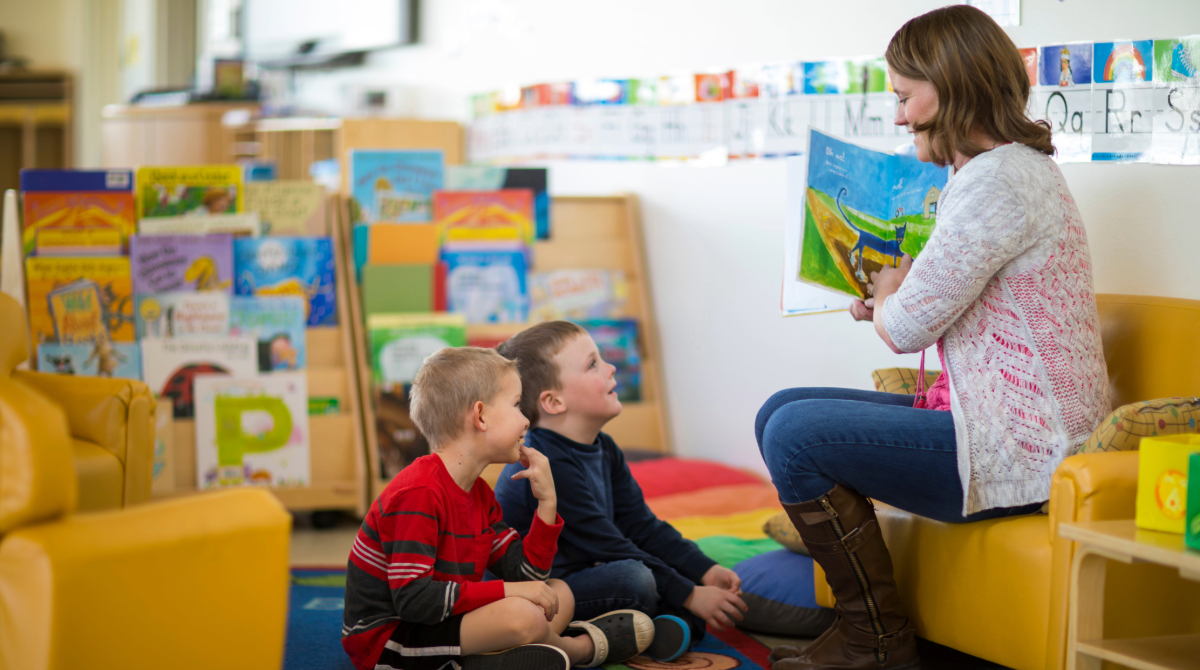Utah Valley University’s (UVU) Wee Care Center, an on-campus childcare facility dedicated to supporting student-parents, has launched an innovative eight-week parent-child reading program that dramatically increases reading time.

Utah Valley University’s (UVU) Wee Care Center, an on-campus childcare facility dedicated to supporting student-parents, has launched an innovative eight-week parent-child reading program that dramatically increases reading time.
“The secret sauce is competition,” said Heidi Billy, assistant director of the Wee Care Center. “It has significantly increased the number of parents who read to their children and the amount of time spent reading. In just one semester, reading rates among parents jumped from 12-15% to 42%. By fall 2024, we achieved 60% participation.”
As Billy said, the program’s secret sauce includes gamifying the reading program by adding competition to motivate and engage families. Prizes are offered to children weekly, whereas parents, who do the most work, earn prizes for reading to their children at least four times a week. By tracking their reading, parents also earn prizes for the teachers of the winning classroom.
Parents receive one point every day they read to their children, and they track and report their points each week at the center. Eight classes operate as teams, complete with creative team names chosen by the children and parents, like “The Book Buddies.”
To make the program more effective, Wee Care leaders teach parents what types of books to read based on their children’s ages and comprehension levels. “The program turns reading into a competitive game for families, which promotes improved vocabulary, stronger family connections, and a lifelong love of learning,” said Billy.
Through the WEE Care Center and a partnership with UVU’s Excelerate Program, parents receive guidance geared toward their child’s developmental stage, such as interactive reading for infants or discussing stories with older children. Reading to infants might involve pointing out pictures and naming objects or just letting infants rough-handle books, while toddlers benefit from books with rhymes.
Last year, these practices effectively increased the infant classroom’s total points from 184 to 334 in just four months. Parents also expressed that the program increased reading times and brought them closer to their children.
“Reading opens many doors, and we need a focus now more than ever in gaining knowledge and building critical thinking skills through analysis and new ideas. Reading can help us do this,” said Billy.
Research from Ohio State University shows that young children whose parents read them five simple books a day hear 1.4 million more words by the time they enter kindergarten compared to their peers who do not have the same opportunity. This increased exposure to vocabulary helps children recognize words in print when they start school, making it easier for them to develop reading skills.
A Reuters article showed that children involved in reading programs with their parents had better social and emotional skills, behavior, and literacy than those who did not. It also showed that parents who read to their children have less stress and more confidence in their parenting.
Children develop better vocabulary comprehension skills through actively reading than they do watching television. Although any form of reading can be beneficial, a Harvard Health study found that toddlers were less interested and more likely to turn away when reading from a tablet than a physical book.
Through exceptional care, creativity, and education, the Wee Care Center’s reading program is shaping the next chapter for families, one book at a time.